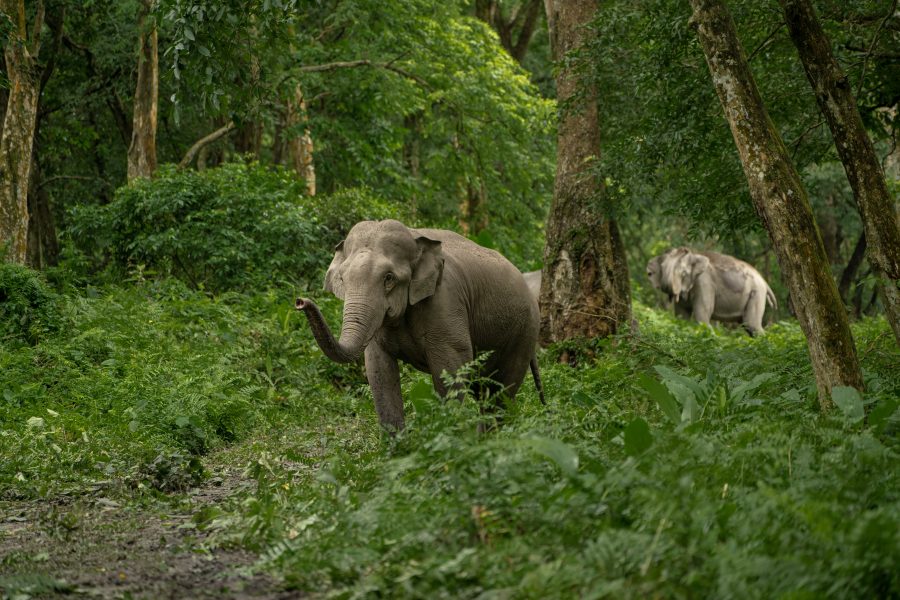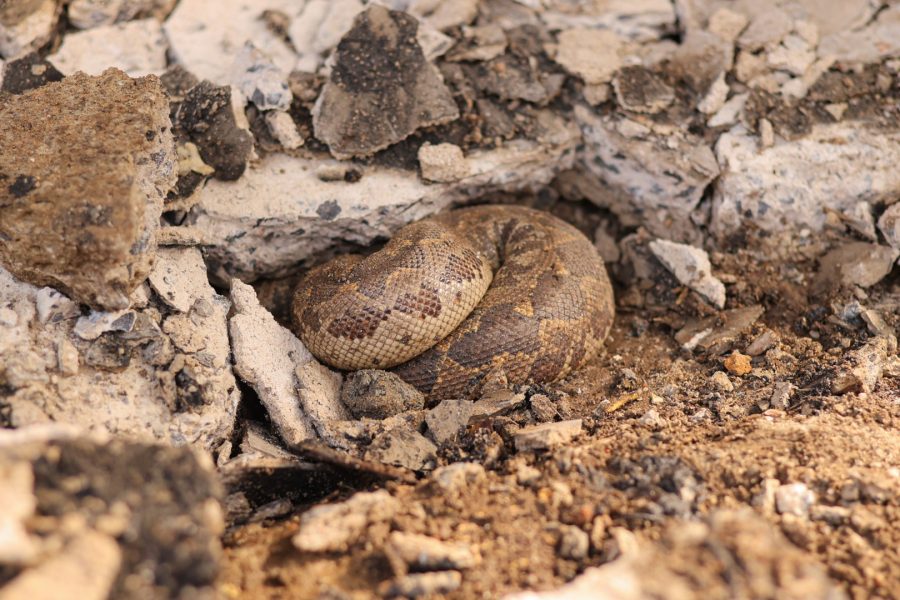 By Amanjeet Kaur
By Amanjeet Kaur
Captive elephants in India have a cruel history of being used for begging, held in temples for ‘blessings’ or forced to perform in circuses. Wildlife SOS is trying to improve the situation for these elephants by helping injured and sick elephants that are forced to work in oppressive conditions. Wildlife SOS currently runs two Elephant Conservation and Care Centers, one in Uttar Pradesh and the other in Haryana. These centers not only provide elephants with the greatest of care, but they are the first to be ‘chain-free rescue centers. This makes us the first rescue centre in the country to do this.
Captive elephants are trained under extremely brutal conditions which negatively affect their health both psychologically and physically. These working elephants have no permanent resting place and are often made to work continuously for 12-14 hours a day. They walk for long hours in the scorching heat on tar roads or stand for long hours during temple rituals with no water. During their ‘rest time’ they often have at least two legs chained. Many suffer from abscesses, foot injuries and ankush inflicted injuries. Most of these injuries need medical attention which they rarely receive.
Wanting to bring some relief to some of India’s neediest elephants, Wildlife SOS has created two centres for elephants. The first one is in Mathura district. This was established in 2010 in collaboration with the forest department of Uttar Pradesh. The second centre is at Ban Santour in Haryana. These one-of-a kind centres in the country keep elephants chain-free 24 hours every day. A solar power fence system is installed in the centre for perimeter protection and works as an active psychological barrier to prevent the elephants from escaping.
 At our centres, medical services are offered to the rescued elephants. At ECCC, Uttar Pradesh, a team of 10 mahouts (elephant handlers), 1 supervisor and 2 veterinary officers manage the 7 elephants currently housed there. Wildlife SOS gives special attention to keeping it chain-free by providing mahout training, positive conditioning and reinforcement methods. All elephants also receive daily foot care and trimming of footpads.
At our centres, medical services are offered to the rescued elephants. At ECCC, Uttar Pradesh, a team of 10 mahouts (elephant handlers), 1 supervisor and 2 veterinary officers manage the 7 elephants currently housed there. Wildlife SOS gives special attention to keeping it chain-free by providing mahout training, positive conditioning and reinforcement methods. All elephants also receive daily foot care and trimming of footpads.
The organization uses positive reinforcement methods to build a healthy relationship between the elephants and their mahouts. The mahouts have been trained by Wildlife SOS to manage elephants without beating them or using conventional and unkind tools like chains, ankush, bull hooks and spears. The mahouts and doctors follow the method of ‘protected contact’ in dealing with the elephants. Under this method, the elephant puts forward the injured part of the body, like the foot, through holes of the enclosure. The vet examines and treats the elephants in this manner.
No longer forced to carry heavy loads or walk on the hot pavement, these majestic creatures are finally able to spend their morning, afternoon and evening enjoying frequent baths, a nutritious and tasty diet and great veterinary care. Inside their enclousre, the elephants are left chain-free and taken for three hour walks every morning and evening to encourage their natural behaviour. These activities include grazing, browsing, dusting, foraging, playing, bathing and napping.
 Wildlife SOS also provides various enclosure enrichments. Enrichments are features added to their environment to actively engage the elephant. At ECCC, various enrichments like overhead fodder and fruit feeders, challenge feeders, barrel feeders and tyres help the elephants maintain their natural behaviours. This keeps them mentally and physically fit and overcome streotypic behaviour that develop from stall-feeding and boredom from lack of activity. The elephants also spend much time bathing and playing in the pond provided at the centres.
Wildlife SOS also provides various enclosure enrichments. Enrichments are features added to their environment to actively engage the elephant. At ECCC, various enrichments like overhead fodder and fruit feeders, challenge feeders, barrel feeders and tyres help the elephants maintain their natural behaviours. This keeps them mentally and physically fit and overcome streotypic behaviour that develop from stall-feeding and boredom from lack of activity. The elephants also spend much time bathing and playing in the pond provided at the centres.
During the musth period for male elephants, when they are aggressive and irritable, protected-contact enclosure are provided in which these elephants are kept chain-free and encouraged to exercise within the space.
Health and nutrition hold primary importance at our centres. The daily balanced diet of an elephant includes 150-200 kilos of focder, 6-7 kilos of cooked concentrate and 20-30 kilos of fruit. Feed additives are given to each animal as per their individual needs. Their weights, daily feeding and treatment records are updated regularily at the centres.
We at Wildlife SOS are on a mission to reach out to the elephants that are wounded, malnourished, dehydrated and treated cruelly. We want to remove them from the shackles of commercial activities and provide them a sanctuary to retire to. We take this opportunity to welome your support in helping us provide these majestic animals what they deserve.
You can sponsor our elephants by clicking here:
https://wildlifesos.org/donate-wildlife-sos/sponsor-elephant
or even make a donation by clickering here:
https://wildlifesos.org/donate
Each elephant, on his road to recovery, has a dark past of captivity and mistreatment. Our team is committed to heal both his mental and physical scars, no matter what it takes.





